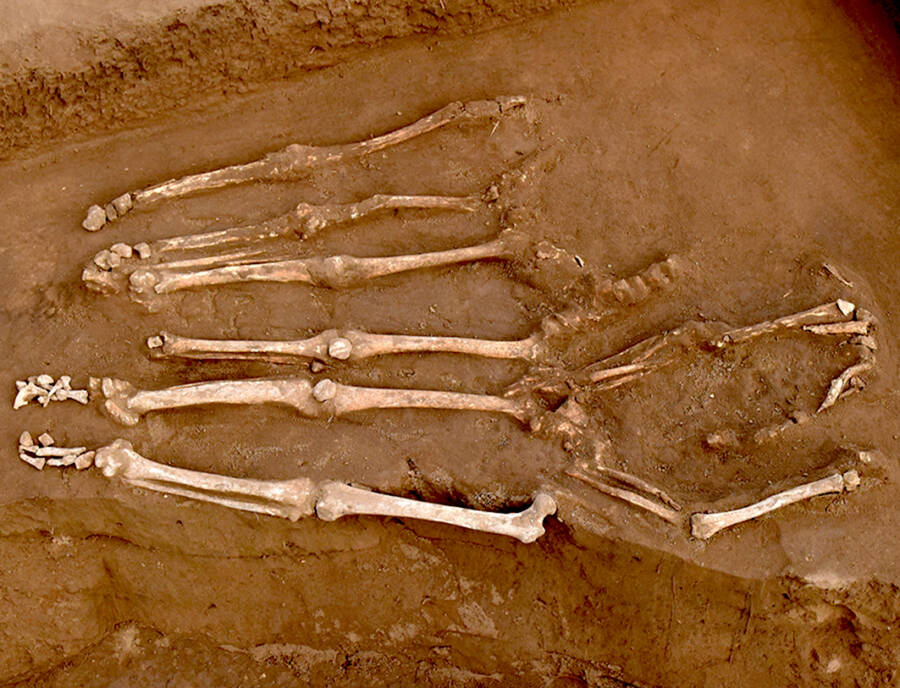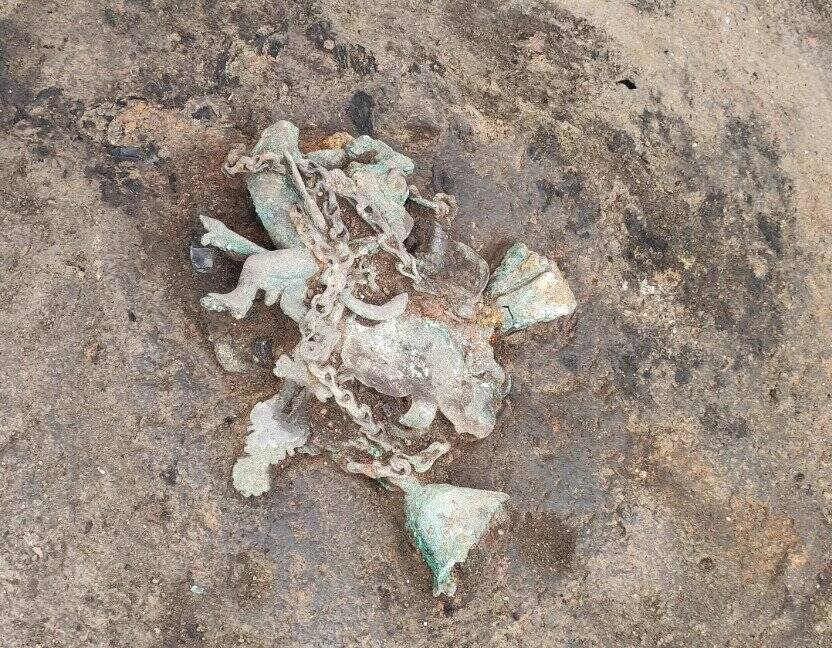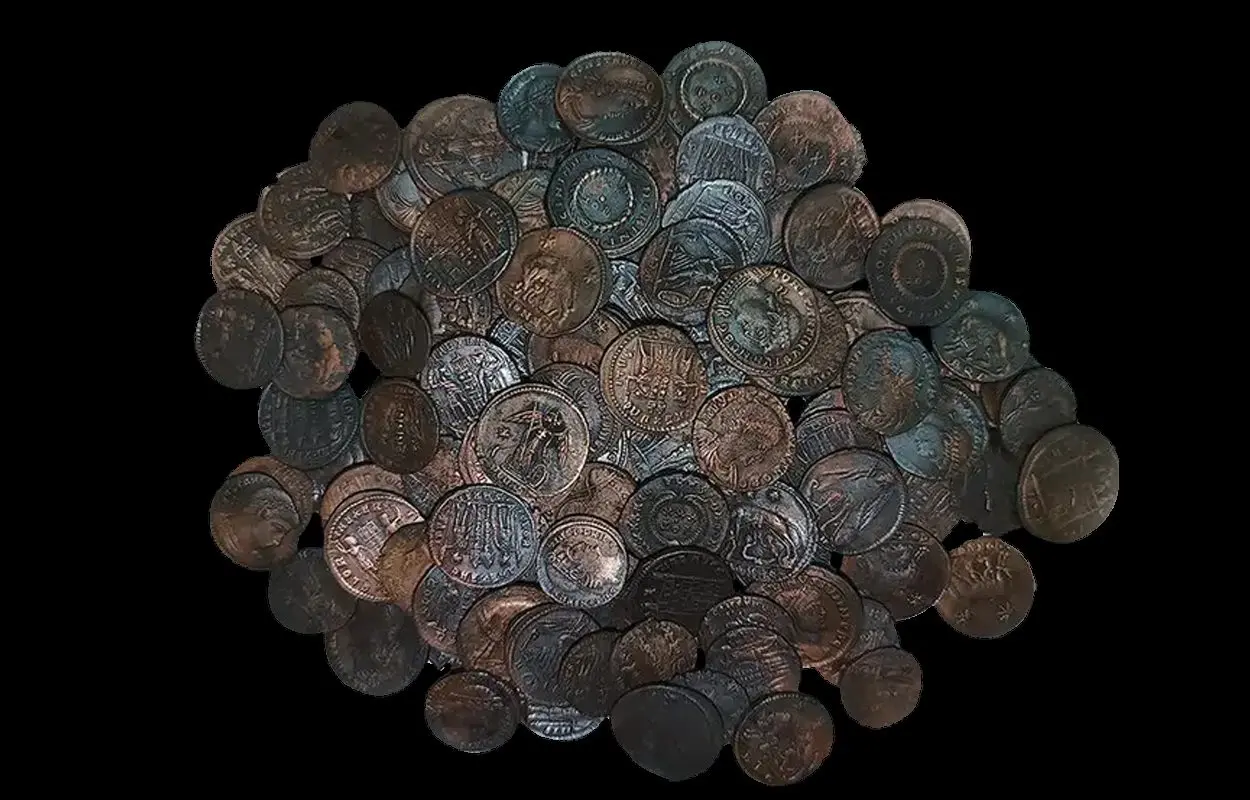Ancient grave filled with headhunting victims found in China, phallic Roman wind chime discovered in Serbia, cache of ancient coins uncovered near Sardinia.
4,100-Year-Old Mass Grave Filled With 41 Decapitated Victims Of A Gruesome Headhunt Unearthed In China

Qian Wang/Texas A&MBecause the victims were all murdered with eerily similar weapons and techniques, with at least 32 of them butchered in a single massacre, experts have concluded that these killings represent “conscious head-hunting behavior.”
Headhunting was practiced by many ancient peoples throughout east Asia and the Pacific Islands as a ritual designed to gain spiritual power and appease deceased ancestors or to intimidate and demoralize rival communities during territorial disputes. In the words of researcher Qian Wang, “Heads of enemy tribes were sought after for a specific ritual meaning, to conquer and/or possess the soul and energy of the enemies.”
Now, Wang and his team have uncovered a gruesome story of headhunting in ancient China. At the Honghe site in the northeastern Heilongjiang province, researchers have unearthed a 4,100-year-old mass grave filled with the headless remains of 41 people, at least 32 of them killed in a single massacre, and all of them women and children.
Learn the full story behind this grisly discovery here.
“Magical” Roman Wind Chime With Winged Phallus Meant To Ward Off The Evil Eye Discovered In Serbia

Ilija Danković/Archaeological InstituteThis phallic wind chime is similar to others that have been found from the same period.
Archaeologists excavating the ancient Roman city of Viminacium in present-day Serbia recently came across an incredible object: A wind chime called a tintinnabulum that featured a large winged phallus.
Archaeologists are keeping the wind chime, made of bronze, mostly submerged in in the dirt for now so that they don’t damage it. But though its exact formation is partially obscured, they can roughly tell what it looks like.
Dig deeper in this report.
A Scuba Diver Just Discovered A Massive Treasure Cache Of Tens Of Thousands Of Ancient Roman Coins

Italian Ministry Of CultureBetween 30,000 and 50,000 bronze Roman coins were found off the coast of Sardinia.
Divers in Italy discovered tens of thousands of ancient Roman coins off the coast of the island of Sardinia.
A diver noticed something metallic in the seagrass and alerted authorities. Divers from the Italian Ministry of Culture’s art protection squad and undersea archaeology department were sent out to investigate.
They found between 30,000 and 50,000 ancient Roman coins, made of bronze and “in an exceptional and rare state of conservation.”
Read on here.





